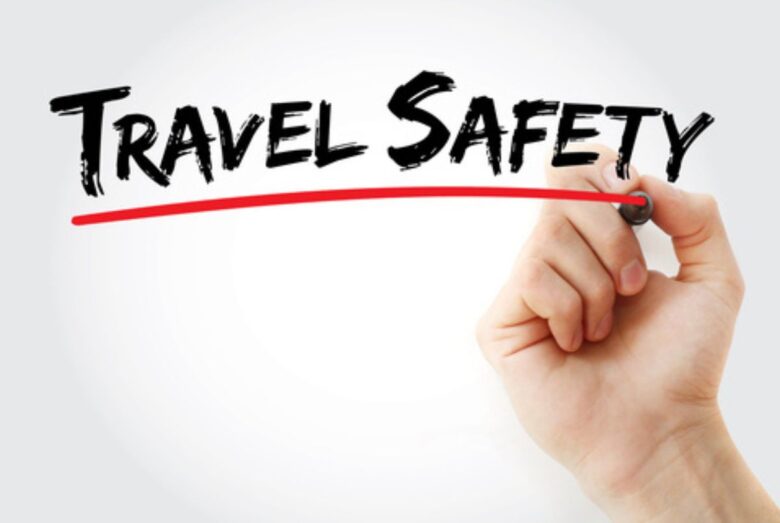As you travel, there are some risks that should be kept in mind, including violence, transportation problems, and natural disasters. Keep all your valuables close or secured in a bag that makes them difficult for thieves to gain access to. Consider carrying a crossbody bag rather than a backpack for added protection.
1. Know Your Limits
Be mindful of your limits while traveling abroad, though these guidelines can be challenging in a foreign culture. Listen to your instinct and avoid anything that seems sketchy. Ensure that you know where to seek assistance when things go wrong. Always have cash and cards stashed away in a hotel safe or PacSafe bag (which contains special, unobtrusive locking zippers with slash-proof wiring), in case they become essential in case you are robbed or pickpocketed.
Before traveling to your destination, conduct research into local crime trends and the ideal neighborhoods to stay in. Consider purchasing a medical alert device for pre-existing conditions, and ensure your travel insurance information is readily accessible.
2. Know Where to Turn for Help
Travel opens the doors to new experiences but also exposes travelers to unfamiliar bacteria and environments that could compromise a vacation quickly and even result in illness. Getting sick during vacation can quickly thwart plans or even ruin an otherwise fantastic adventure!
Waterborne illness is a significant risk when traveling, particularly to areas with unclean drinking water. Consuming contaminated water may result in diarrhea, vomiting, and stomachache—potentially rendering travelers incapacitated for days at a time.
Frequent handwashing and use of alcohol-based sanitizer are effective measures against germ transmission, while buffets and prepackaged food that have been sitting out for extended periods should be avoided in favor of hot, freshly cooked food. Dry snacks can also be eaten safely, as bacteria need moisture in order to survive and spread.
3. Beware of Water
Water is essential to human life, yet contaminated drinking water poses a great danger to travelers. Travelers could become susceptible to waterborne illnesses like diarrhea, cholera, and giardiasis as a result of bacteria, protozoa, or viruses found in unsanitary water sources.
By conducting some basic research and planning ahead of their journeys, travelers can avoid drinking contaminated water. They should always opt for sealed bottled water from reputable brands and may consider purchasing a portable UV water purifier if they cannot stomach drinking tap water directly. By taking these precautions, they can enjoy their trip without fear of getting sick!
4. Beware of Mother Nature
Even experienced swimmers can encounter dangerous water environments abroad. Prior to leaving on vacation, research any water safety tips and precautions specific to your destination.
Bring along a travel-sized bottle of hand sanitizer, as well as any personal medications and pain relievers you might need, such as eyedrops. In addition, face masks and disinfecting wipes may be helpful against common germs found in hotel rooms. Securing an aisle seat when riding buses, trains, and trolleys is also wise in order to protect against being cornered by thieves and make exiting quickly in an emergency easier.
5. Beware of Public Transport
Public transit can often make people feel vulnerable, as it forces them into close quarters with strangers in an enclosed space, especially if there have been reports about incidents on transit circulating in the media.
Travelers generally do not fall victim to crimes while riding buses and trains, yet it is still wise to remain aware of possible risks and take proper precautions when possible. Utilizing an offline map, staying away from sketchy areas, and using local guides such as Rustic Pathways will all help keep you safe while enjoying your adventure.
6. Beware of Pickpockets
Numerous travelers find avoiding pickpockets to be essential to an enjoyable travel experience. This means not leaving items like your phone, wallet, and rail pass sitting on bus seats or restaurant tables, as this makes them easy targets for thieves. Instead, spread out your belongings across various pockets or use a crossbody bag so they are kept close by you at all times.
Be wary of pickpocket hotspots (such as Barcelona, Paris, Amsterdam, Florence and London) when traveling on public transportation or in crowded environments; Be especially vigilant while traveling on public transport or in overly packed environments; watch for staged disturbances like spilled drinks or fake fights to alert yourself against them.
7. Beware of Strangers
Not only should you strive to avoid high-risk activities, but it’s equally essential that if something does go wrong, you know where you can turn for assistance if something arises. Research hospitals, police stations, and other emergency locations ahead of time so they’re easily available if required.
Vacation mode” can cause travelers to trust strangers more, be unaware of local dangers, and increase the risk of human trafficking and other unsafe situations. Encourage your children to walk the streets without their earphones in and focus on their immediate environment rather than listening to podcasts, reading articles, or taking selfies—these actions could signal pickpockets who wish to commit thefts.
8. Beware of Pickpockets
Pickpocketing is a widespread problem in many nations around the world. Pickpockets employ various tactics—including sleight-of-hand and distraction—to steal money, passports, phones, and other personal possessions from unsuspecting victims. Some pickpockets operate independently or in groups.
As part of your efforts to safeguard your belongings, you must never leave them unattended. Avoid carrying your wallet in your back pocket; consider investing in a backpack with zippered or snap pockets instead, and wear it on your front when in high-risk environments like markets, train stations, or public buses; special slash-proof bags are available to reduce this crime risk.
9. Beware of Pickpockets in High-Tourist Areas
Petty thefts may be more prevalent than you realize in tourist areas, especially as visitors become disoriented with all the new sights and smells or become distracted in a crowd. Holding onto some extra cards and cash at your hotel can help mitigate potential pickpocketing losses, and limit what you carry during the day to minimize damage if anything is stolen.
Be wary of anyone approaching you on the street; they could be pickpockets, scammers, or salesmen. Criminals sometimes train street children to surround tourists while stealing.




